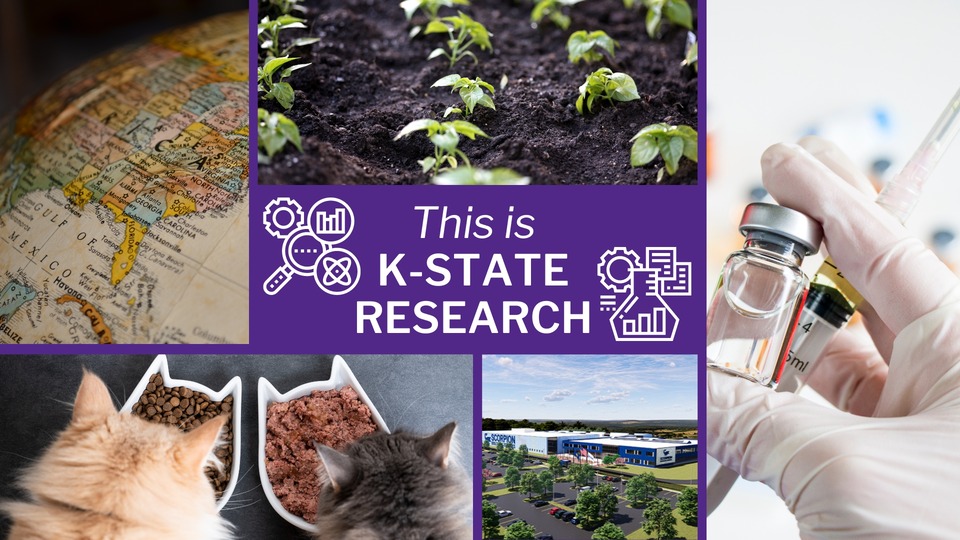K-State research that should be on your radar
Discovering vaccines that can transform human and animal health. Addressing the global
food shortage. Developing the next generation of pet food. Partnering with industry
to create jobs and drive scientific innovation. Creating crops that can better withstand
environmental challenges.
What do all these (seemingly unrelated) research projects have in common? K-State
has a hand in each of these important projects, which are dedicated to improving the
lives of people across the state, the nation and the globe.
We’ve partnered with Seek, the university’s award-winning research magazine, to share more about these five
K-State research projects we think should be on your radar this year.
1. From research to reality: A closer look at vaccine development
Vaccines truly are critical, and K-State is becoming a leader for their development.
From the existing biosafety level-3 laboratories at the BRI to the new Biologics Development
Module that will expand vaccine research capabilities, the university is enhancing
its capacity for this important line of work.
K-State scientists are studying and developing multiple human and animal vaccines
and have achieved success with international collaborations, patented intellectual
property and partnerships with industry.
2. Building resilience: Unraveling global chaos through research
After more than two years of fear and uncertainty during the pandemic, the world still
seems tumultuous. Continued supply chain issues, concerns with inflation and a possible
recession are a few examples of recent events that cause anxiety. Additionally, the
Russian invasion of Ukraine has intensified international security concerns, sparked
record-high gas prices and created new global food supply issues.
Global resilience is needed now more than ever — and it starts by understanding the
issues. That’s the goal of K-State researchers who are working to provide context
and solutions in the areas of politics, oil and food.
3. Pawsitive results: Programs focus on pet nutrition and health
If we are what we eat, the same holds true for our pets, particularly dogs and cats,
according to experts and researchers with K-State’s pet food program in the College
of Agriculture and Hill’s Pet Health and Nutrition Center in the College of Veterinary
Medicine. They say good nutrition is important for healthy pets.
K-State’s pet food program, a part of the feed science program in the grain science
and industry department, is the only program in the U.S. focused on food for dogs
and cats. The program offers research expertise and facilities to explore solutions
for pet nutritional challenges and pet food processing.
4. New company on the block: Scorpion Biological Services brings research opportunities to state and university community
When Scorpion Biological Services Inc. set out to build a new facility, company leaders
considered locations in 23 states. Ultimately, the company chose Manhattan, Kansas,
as the location for a new $650 million commercial-scale facility. And K-State was
a big reason why.
Scorpion is a biopharmaceutical contract development and manufacturing organization.
According to the company, it selected Manhattan because of the area’s concentration
of biodefense organizations, including the K-State Biosecurity Research Institute
and the National Bio and Agro-Defense Facility adjacent to the K-State Manhattan campus.
5. A worldwide lipid leader: Biologist takes center research across the globe
For a shining example of success, look no further than Ruth Welti, K-State distinguished
professor of biology and founder and director of the Kansas Lipidomics Research Center.
“One of our big-picture goals is to understand how plants, and particularly crop plants,
can respond when faced with environmental challenges like bad weather — heat or cold,
for example — in order to develop strategies for improved crop resilience,” Welti
said.

